Autonomous Mining Rover for Mining Gypsum on Mars
Why This Project Is Important
Space mining is next step in innovative mining. The Mining INnovation Enterprise (MINE) is working towards preparing their students to be knowledgeable in the aerospace, mining, and mechanical aspects of this new idea. By creating a rover that is able to wireless operate on Mars while collecting the correct payload, it will open doors for the students to design, test, and implement what we have learned in our engineering based classes.
Project Description
As an enterprise, we started from the ground up to design and build a fully functioning rover. The project that this enterprise is to test and improve the rover’s mining equipment to its sensory devices. Right now, we are in the finishing stages of the building process and looking to improve the rover on a deeper level. By being able to decrease the weight, increase mobility, and create new solutions for future problems, we are learning valuable engineering skills that textbooks cannot teach us.
This project is being developed under the Mining Innovation Enterprise (MINE). MINE seeks to design, test, and implement mining innovation technologies for industry partners. MINE works in interdisciplinary subteams to solve current and future challenges in the traditional mining industry, as well as the emerging mining fields of deep sea and space mining. Opportunities include the improvement of safety and working conditions, increasing productivity and efficiency, as well as mine and equipment design and optimization.
Meet the Researchers
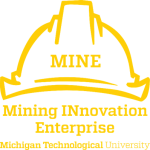
Mine Rover
The Mining INnovation Enterprise (MINE) seeks to design, test, and implement mining innovation technologies for industry partners. MINE is apart of the NASA Robotic Competition that takes place in May 2020 at the Kennedy Space Center. We will be designing, building, and testing a robot that will be able to traverse and mine on a lunar surface

Paul van Susante
Dr. van Susante grew up in The Netherlands, received a Master of Science from Delft University of Technology in 2001 in Civil Engineering with an emphasis on Building Engineering. He then went to the Colorado School of Mines (CSM) to participate in NASA research and received a Master of Science in Engineering Systems from CSM in 2004 followed by a Ph.D in Engineering Systems from CSM in 2011. Dr. van Susante taught Freshman, Sophomore and Senior Design as well as Mechanics of Materials for five years at CSM before coming to Michigan Technological University in 2012. He was a NASA Faculty Fellow in 2010 and consulted for a variety of companies on SBIR or STTR projects such as University of Arizona, Sysrand Corporation, Energid, HoneyBee Robotics and others. He has been involved in research projects for many customers including Lockheed Martin, DARPA, NASA KSC, JPL, Bechtel, Caterpillar, NCHRP, NSF and others.
days left
funded
last
What Your Donation Can Help Us Do:
- Gear Box: To increase mobility and efficiency of the overall performance of the Rover
- Waterproofing: Increase the duration of testing to no longer be weather dependent.
- Weight Reduction: Purchasing lighter material, lighter batteries, and redesigning the belly plate to increase the payload
- Axle Redesign: Increase stability and overall performance
Recent Donors
Some donors may be hidden.
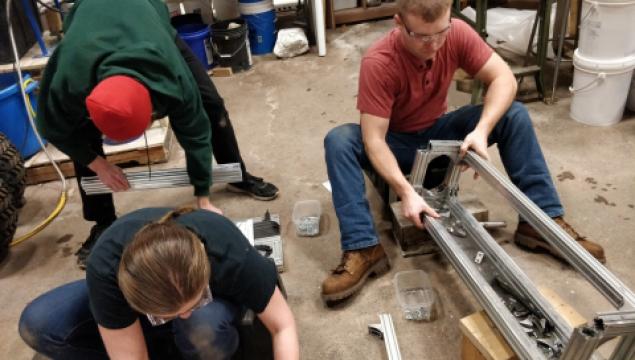
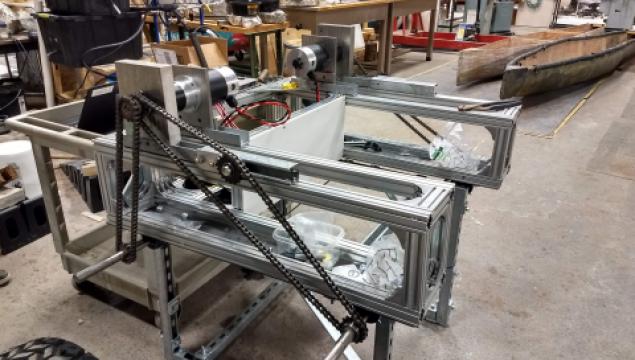
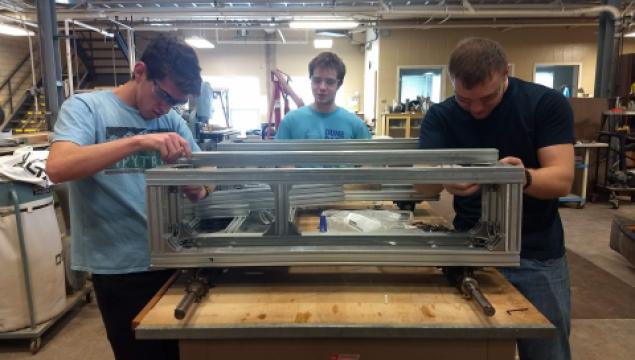
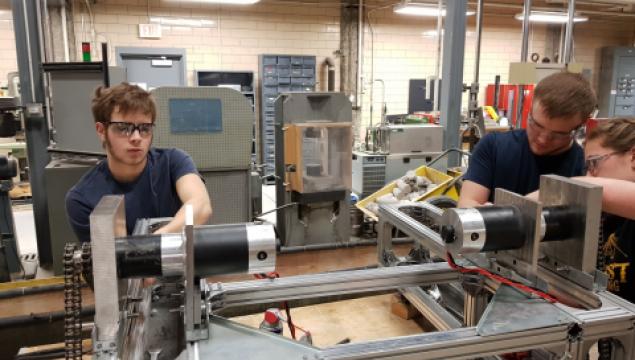
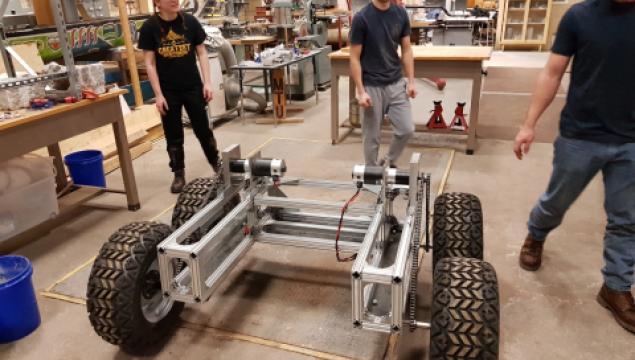
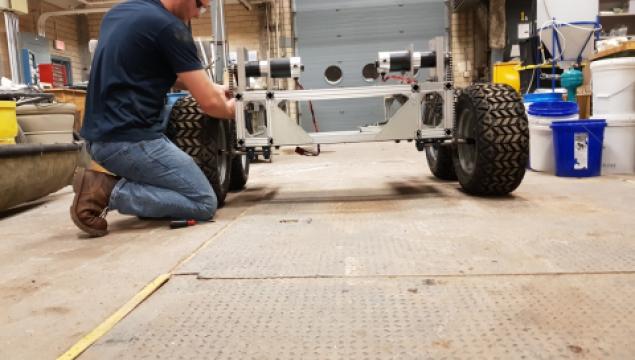


 Gifts to projects listed on SUPERIORIDEAS.ORG are received and processed by Michigan Tech Fund. Michigan Tech Fund is a tax-exempt organization under Section 501(c)(3) of the Internal Revenue Code acting on behalf of Michigan Technological University. It is the policy of Michigan Tech Fund that a portion of the gifts and/or income therefrom may be used to defray the costs of raising and administering the funds.
Gifts to projects listed on SUPERIORIDEAS.ORG are received and processed by Michigan Tech Fund. Michigan Tech Fund is a tax-exempt organization under Section 501(c)(3) of the Internal Revenue Code acting on behalf of Michigan Technological University. It is the policy of Michigan Tech Fund that a portion of the gifts and/or income therefrom may be used to defray the costs of raising and administering the funds.